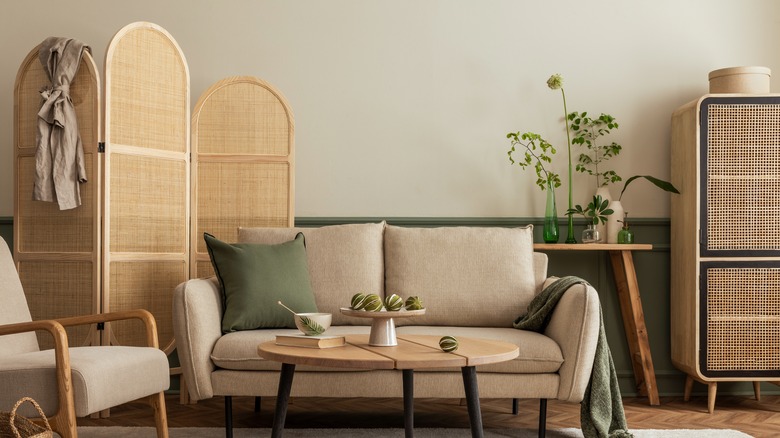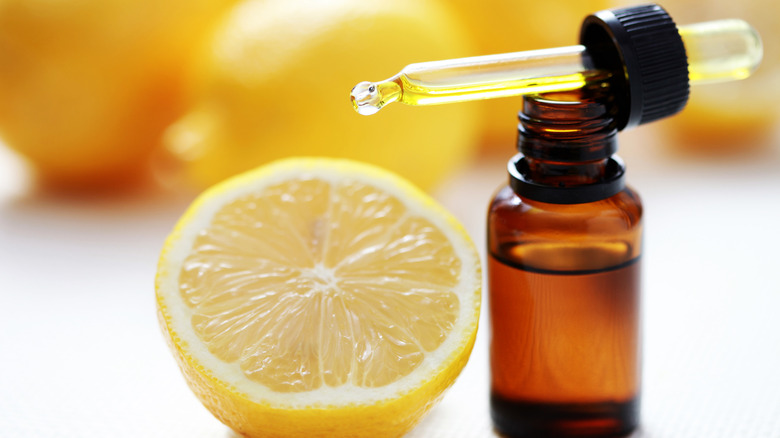The Lemon Hack You Can Use To Refresh Your Living Room Furniture
Caring for your rattan and cane furniture can seem daunting; after all, the material, while sturdy, is unlike solid wood or metal and can be affected differently by daily wear and tear. With rattan and cane furniture coming back into style for home decor, it's important to know how to keep these materials in good condition. Lemon oil has been touted by cleaning websites and blog sites alike, suggesting that wiping this essential oil on rattan and cane can both protect and refresh pieces. The oil also adds a shine that makes your furniture seem new, even if you've had it for years. Like all home remedies, results may vary, but you might notice a difference and your home will certainly smell amazing after an application.
It's important to note that every piece of furniture can react differently to cleaning methods. The older an item is, or the more wear it has, might mean it is susceptible to harsh chemicals or in this instance, components within the oil. Moisturizing these materials is important to help them last, and lemon oil has been recommended as a product that can revive rattan and cane by cleaning services like Hellamaid. Wicker furniture suppliers also note it can help, but it's always wise to use caution when trying a home remedy for your pieces.
Use lemon oil twice a year to moisturize rattan
The best way to clean rattan furniture is with gentle methods, starting with soap and water, or you can use salt as a scrub for tougher stains. The lemon oil will act as a moisturizer after you've rid the piece of dirt and dust, but you only need to use this trick twice a year. Before wiping down your rattan or cane with lemon oil, test a very small area of your furniture with a clean cloth and the oil. This will give you a better idea of the outcome to expect, especially if you're working with older pieces. If the oil seems to absorb and moisturize and there are no notable drawbacks, you can continue wiping the lemon oil all over the furniture, using small amounts to saturate and shine up worn rattan. If you have wicker or cane materials that have been painted, avoid using this method, as it could interfere with the white shades and turn them yellow or off-white. Don't use it on whitewashed rattan, either.
If your furniture seems particularly dry, the lemon oil could help instill moisture back into the strands, which in turn will make the entire unit look as good as new! This trick can be especially helpful if you keep your rattan or cane furniture outdoors, which is common for this type of material. The sun, wind, and even rain (after these pieces dry) can make them brittle, so they need something to counter that.

